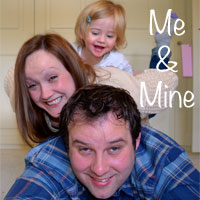Following on from the post Why Foster Care Is Needed I have another post from David about the different types of Fostering placements. With over 72,000 children in foster care, the demand for foster carers is high. Here are the types of placements.
You can find out about the different types of fostering placements available through us here. This article looks at the different types of placements and why they suit different foster carers.
It is imperative that there is a strong match between fostering placements and the needs of the child at that point in their life. Meeting the needs of different placements often requires some distinct skills and availability. An honest discussion about the best type of fostering placements for you can help to ensure the overall success of a placement.
Short term v long term foster placements
Before looking at more specifics, it is essential to understand the difference between short and long-term fostering placements. We often discover that there is a misunderstanding with regards to these placements, believing the definition lies in time factors alone.
However, the difference is more distinct than this. A short-term placement is simply one where the long-term arrangements for the child have not yet been finalised. This may indeed mean it is just a few nights in an emergency, a few months until they can go home, or even a few years where court cases are concerned, or until the adoption is finalised. Really, it’s about providing a home and stability until long-term solutions are settled.
Long-term fostering placements are those where the long-term plan for the child, until they reach adulthood, has been finalised: this child will stay in foster care.
This means that the vast majority of children start off in foster care in short-term care.
When considering short and long-term placements in terms of physical time, different carers prefer different things. For example, a foster family with their own birth children may prefer long-term placements to minimise disruption for those children. Conversely, some foster carers prefer successive short-term placements to enable more flexibility.
Distinct types of fostering placements
Within both short and long-term placements, there are a number of different distinct types of placement. Let’s look at these:
• Step-down foster placements: When a child has been cared for within residential care, it can be difficult for them to transition back to living with a family, even if this is in their long-term interests. Step-down placements are designed to smooth the transition back into a family home. In these cases, specialist skills can be required on the part of the foster carer.
• Parent-child fostering placements: In some unique situations, it is in the best interests of a baby to provide their birth mother with support and assistance in the early days of parenthood. These are specialist placements where mum and baby are placed together, and your role as a foster carer is to nurture them as a unit.
• Sibling placements: In many situations, it is beneficial to keep sibling groups together to provide consistency and security to the children. It’s vital to have foster carers who are willing to take sibling groups to enable each child to flourish within the safety of their sibling relationships.
• Respite care: Foster care placements can be used to provide respite care to families where a break is needed. This may be due to parenting a child with a physical, learning or sensory disability. It may be due to behavioural difficulties or a temporary problem at home.
• Sanctuary-seeking placements: Some children arrive in the UK seeking asylum. These children often require specialist care and a place of safety and security.
• Remand placements: A court may order that a child who is charged with an offence and is awaiting trial, or a child convicted of a crime but it is unsuitable for them to return home, be placed in foster care. Again, these can be specialist placements requiring additional support and training.

How to choose the right fostering placement?
During the process of becoming an approved foster carer, you should be trained to understand the nature of different placements. This will help you think for yourself which type of placements best suit you. Additionally, the process of approval will also help to highlight which fostering placements are the best fit.
Author bio: David Milsont is an ardent writer, who inspires the readers by writing highly factual and informative posts. When he is not busy with his writing assignments, he loves to spending time with his loved ones.

























